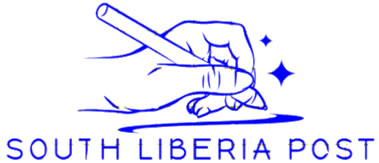The African Union Inter-African Bureau for Animal Resources (AU-IBAR) in collaboration with the Liberia Maritime Authority (LiMA) today opens a three-day National Broad-Based Stakeholders’ Consultation and Final Validation Workshop for Liberia’s National Blue Economy Strategy in Monrovia.
The validation workshop follows a National Stakeholders Consultative Workshop held in September 2024 and is organized by the African Union Inter-African Bureau for Animal Resources (AU-IBAR) with funding from the Kingdom of Norway. It aligns with the African Union’s Agenda 2063, particularly Goal 6: “Blue/Ocean Economy for Accelerated Economic Growth.”
The workshop brings together a wide range of stakeholders, including technical experts from the Liberia Maritime Authority (LiMA), National Fisheries and Aquaculture Authority (NaFAA), Ministry of Mines and Energy (MME), Liberia Petroleum Refining Company (LPRC), Environmental Protection Agency (EPA), Liberia Water and Sewer Corporation (LWSC), Ministry of National Defense (MOD), universities, civil society, the private sector, and many other key relevant agencies. Participants will enrich and validate the draft strategy, which focuses on sustainability, economic growth, inclusivity, innovation, and international cooperation.
Delivering the opening remarks on behalf of Cllr. Neto Zarzar Lighe, Sr., Commissioner/CEO of the Liberia Maritime Authority, Hon. John F. Harvey, Deputy Commissioner for Vessel Registration, emphasized the importance of the strategy in Liberia’s development and thanked the Kingdom of Norway for their support.
“Liberia’s oceans, rivers, and lakes are vital to our livelihoods and national prosperity. The Blue Economy is a cornerstone for sustainable development, and this workshop is critical to ensuring the strategy is inclusive, practical, and impactful,” he said.
Dr. Huyam Salih, Director of AU-IBAR, represented by Mr. Obinna Anozie, Coastal and Marine Ecosystems Specialist, described the Blue Economy as a “game changer” for Africa, highlighting the importance of regional collaboration. “This strategy is a testament to the power of inclusivity in driving sustainable development,” he said.
He further reiterated AU-IBAR’s commitment to supporting African nations in formulating actionable Blue Economy frameworks.
Over the next three days, stakeholders will refine the strategy’s goals, vision, and implementation roadmap, addressing critical areas like resource mobilization, capacity-building, and institutional coordination, with the aim of integrating the strategy into Liberia’s broader national development agenda.
With its abundant aquatic resources, Liberia’s move toward a comprehensive Blue Economy strategy signals a bold step in harnessing its potential for economic resilience and environmental stewardship. The finalized blueprint is set to enhance livelihoods, foster technological innovation, and promote sustainable resource use, marking a new chapter in the nation’s development trajectory.
Source: www.lima.gov.lr (Liberia’s Maritime Authority).


